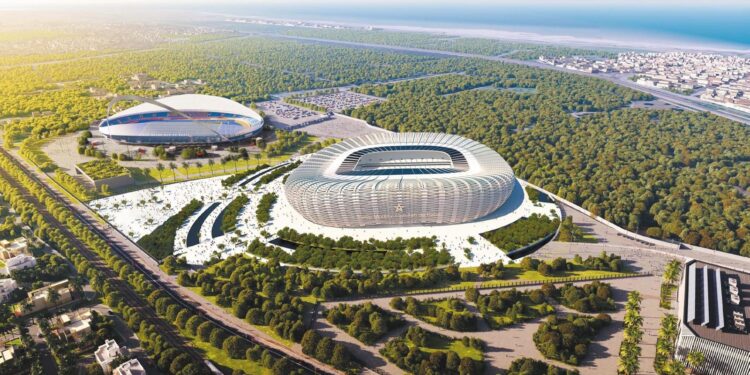A recent report by global management consulting firm Kearney indicates that Arab countries are rapidly becoming among the most influential players in the global sports sector, witnessing rapid and sustained growth across various sectors, making them a key driving force in the innovation and investment that is reshaping the future of sports globally.
According to the report, “From Passion to Profit: Unlocking the Value of Sports,” the global sports market is expected to exceed $600 billion by 2030, and the Arab region is playing a pivotal role in this growth thanks to strategic investments, forward-looking policies, and technology-enabled innovations.
The report explained that these strategic investments are evident in several areas, as the region has established itself as a major destination for hosting major sporting events, such as the FIFA World Cup in Qatar, the Formula 1 Bahrain Grand Prix, and the Dubai Tennis Championship, in addition to Saudi Arabia’s upcoming hosting of the eOlympics.
The report stated that these events are not limited to spectacle, but rather reflect strategic efforts to position the region on the global sports agenda. Against the backdrop of these successes, investments in sports infrastructure are accelerating in the Middle East, with governments allocating billions of dollars to build next-generation stadiums, elite training academies, and integrated digital platforms.
In Saudi Arabia, huge budgets have been allocated to sports infrastructure as part of Vision 2030, while Qatar and the UAE continue to strengthen their sports ecosystems to attract global talent. Dubai Crown Prince Sheikh Hamdan bin Mohammed also announced that Dubai will host the first Global Sports Summit in December 2025, further strengthening the region’s growing influence on the international sports scene.
Women’s participation in sports has also seen significant growth, with new professional women’s football leagues launched in Qatar, the UAE, and Saudi Arabia, along with school and community initiatives to increase participation rates.
Mohammed Hashem, Partner and Head of Sports for the Middle East and Africa at Kearney, emphasized that what distinguishes the Arab region is its forward-looking outlook, free from traditional constraints. Countries in the region are innovating on a wide scale, from the “Sports Path” project in Riyadh to the integrated infrastructure for the World Cup in Qatar and the ecosystem of digital platforms for fans in the UAE. He added that countries in the region are not content with copying Western models, but are experimenting with new frameworks that align sports with their broader economic and societal ambitions.







